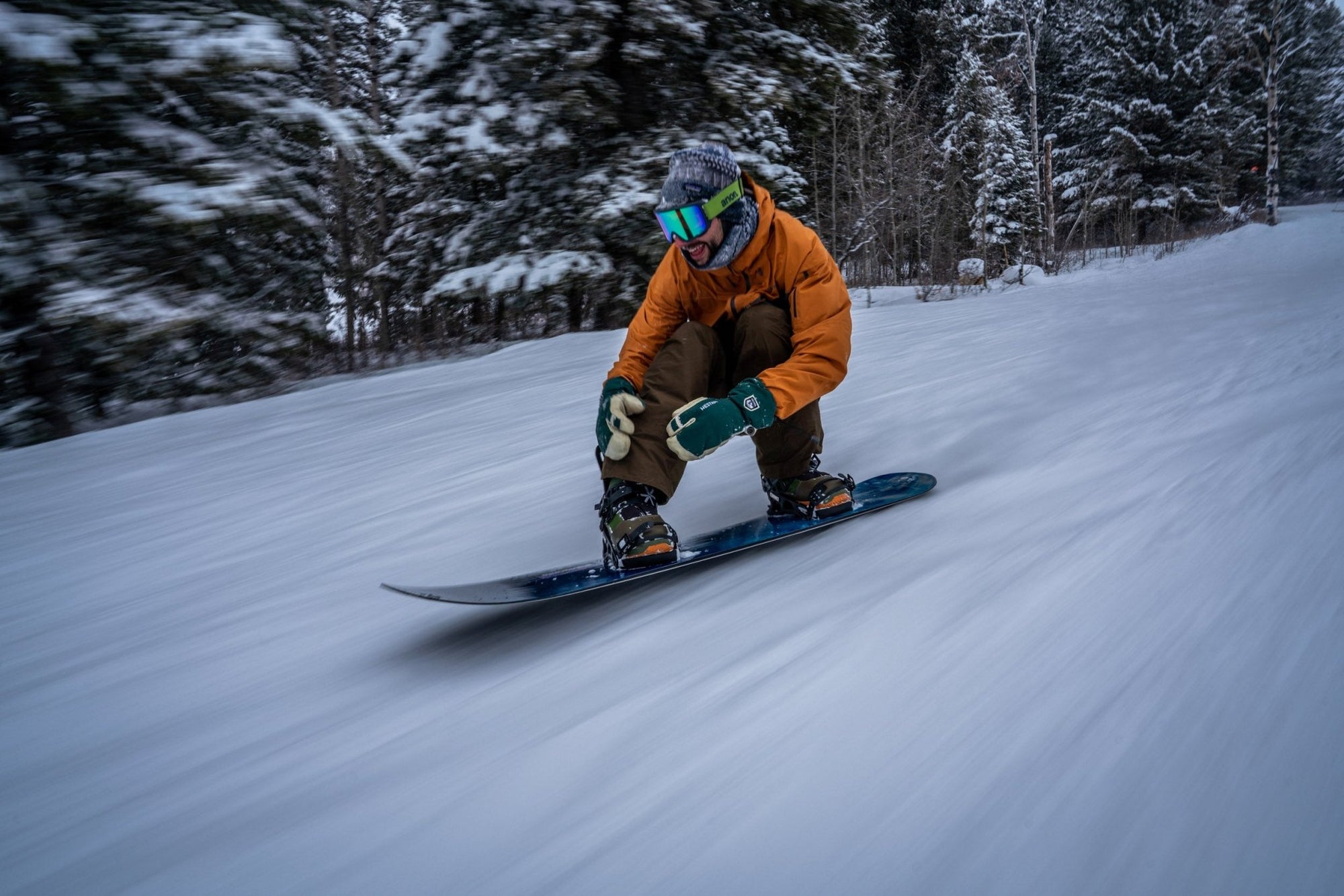The Crux Series - From Jackson to Japan with Alex Yoder

THE CRUX SERIES
JACKSON TO JAPAN

WITH
ALEX YODER
The Crux Series is a collection of interviews with mountain experts that have a wealth of knowledge about each of the peaks and regions in our glasses. In support of the launch of our Mt. Fuji glass in Japan, we connect with Alex Yoder , who’s professional style has been deeply influenced by the Japanese approach to life in the mountains.
Photos: Wade Dunstan
Growing up in Jackson, Wyoming, Alex had spent years riding steep terrain in an aggressive way. After a breakthrough trip to Japan, he discovered a more holistic and gentler way to read the terrain and the mountains. Alex is now globally known for blending effortless style with an optimistic and welcoming attitude, earning himself a spot in the Gentemstick and Patagonia snow surfing family.
Alex has recently taken his passion for environmental stewardship and founded Overview Coffee. With the mission of prioritizing environmental stewardship in producing one of the world's most cherished commodities and making some delicious coffee! Dig in to get deeper into the world of Yoder.

WHAT IS YOUR RELATIONSHIP WITH JAPAN?
I found out about Japan as a kid who binged snowboard movies. Through all of the Japan segments quickly became my dream to visit there one day. It was the ultimate snowboard trip in my mind. That materialized, I think it was 2014. I went with the whole Drink Water team when they were filming Pathology. It was pretty hilarious. It was eight guys from the U.S, rolling in this pod around Hokkaido. Our primary focus was filming, so we were just riding all day, every day.

Right before that trip, at the Dirksen Derby that year I met Rip Zinger, a bit of an enigmatic figure in our world. I was riding around with him at Mt. Bachelor and he was riding this funny little, 141cm board. I was riding for Jones at the time, we're both goofy footers, and he said, "You should try my board. I think you'll like it." And I was like, "That thing looks so small and crazy, but yeah, sure." I rode around on it, and I was just amazed by how it felt and how the mountain seemed to change with that board under my feet. After riding it, Rip said, " You need to meet Taro.” [ Taro Tamai - Founder of Gentemstick and globally renowned snow surfer ]

Photo: Jon Tapper
I had spent the last five or six years snowboarding competitively in Big Mountain events, and also filming for videos - chasing that beaten path of what I perceived a pro snowboarder to be. And I say beaten path because I was kicking the shit out of myself in the process. After some hard slams started to think that I might need to explore different career paths because this doesn't feel right.
There’s a lot of setup to the story, but the point is I spent two weeks with eight awesome American guys in Japan but felt like I didn’t integrate into the culture at all. I kind of felt like I was missing something. So then the third week, I spent the entire week with Rip and only Japanese people, and I was like, " This is what I was missing." My friend from home, Wade Dunstan, was there too. [ taking many of the photos in this article ]
I had a few experiences on the mountain in that week where I realized there's this style of snowboarding that I didn't have any exposure to previously. It is much less aggressive than what I grew up with in Jackson and what I'd been pursuing as the apparent path of a person trying to be a professional snowboarder.
I instantly felt at home. And it's that story that is analogous to my appreciation for Japan and why it's important to me because they just have a different way of going about things. It seems like a more gentle pursuit of life in general.

HOW DID YOUR FORMAL CONNECTION TO GENTEMSTICK COME TOGETHER?
That was kind of a funny one that came together the first week that I spent with Taro after the Drink Water trip. I wanted to try all these different beautiful shapes that Taro had designed.
He gave me a different board to try every day, and I didn't realize it at the time, but he was sort of testing me because I think behind the scenes, Rip had told him that maybe I would be a candidate to join the team or something. And so I figured I was there having a good time, meeting these guys, but in a way I was being interviewed… It was sort of a test in a sense.




And so, every day after we rode, Taro would ask me some questions about the board, and I would give my feedback on how it felt. And I guess I passed the test because, at the end of the week, he sat me down and, in an almost ceremonial way- he asked me, "Would you like to join our family?" I was deeply honored. It's a small team, and it's a special sort of little family. The boards completely changed my perspective on the experience of snowboarding and the community inspired me to look at the mountains in a new way.
HOW HAS THAT EXPERIENCE CONTINUED TO INSPIRE YOU?
Much of what Japan is known for is this element of mastery, where a lot of people will focus their entire lives on mastering a certain skill set. And, and I saw that in the snowboarders there and the people that I met with Taro, Rip, Ken and the rest of the crew. It’s a very different approach from the average snowboarder in the U.S. who figures out how to control their speed well enough and then they start learning tricks. In the U.S. I’ve noticed a pretty crazy progression curve. Where in Japan people will be snowboarding their entire lives, just trying to master the turn. Seeing a more gentle approach to snowboarding really opened my eyes.
HOW HAS YOUR CONNECTION TO JAPAN CHANGED YOUR RELATIONSHIP WITH OTHER MOUNTAINS?
In almost every way. I grew up in Jackson, Wyoming, which is known for being a pretty extreme place and it's hard not to become a product of that environment as an impressionable youth. I grew up with guys like Travis Rice, Bryan Iguchi and a long list of amazing snowboarders. The mountain [ Jackson Hole ] sort of encourages that aggressive riding, because it is super steep it's often just easier to go straight down something than to try to ride it smoothly. I just grew up in that. And then, as I was saying, there was this transitional period where I felt like that style of riding wasn't aligned with me, my soul or personality, or how I liked to operate. That level of aggression felt like a betrayal of the freedom I had the privilege to experience on a snowboard in the mountains. So when I went to Japan and I started riding with these guys, I felt like I got to enter a totally new world of snowboarding that felt a lot more natural for me.

Photo: Gabe L'Heureux
So after that week I spent in Niseko I flew back to the U.S. for the Baker Banked Slalom. It was crazy because I was almost in tears when I had to leave. I was like, "I don't want to leave. I don't feel like I should leave." But I had a flight. I was at the point where I had the ticket in my hand. I was like, "Maybe I just don't get on this flight." but I did. Then this Patagonia trip popped up and I went back to Japan for two weeks the Monday after the slalom. That was the best way to cure the jetlag - just go back! (laughs)
That second trip was special too because it was with Josh Dirksen and Gerry Lopez - Dirksen being one of my childhood heroes and Gerry being... Gerry. It felt like I got to go back and sort of galvanize the experience from the previous trip. There's a cool movie that came from that trip, it's called The Northern Sky that really captures the spirit. [ watch it below ]
When I got back to Jackson, after spending a few weeks in Japan that season, I started to look at the mountain differently. I used to have this A to B approach where from the top of the lift, I knew which features I'd want to hit on the way down. I’d go as fast as possible, slow down for a feature, hit the jump, speed back up and get to the next thing. And that's just how we rolled around.
After Japan, I started to look at the mountain more three-dimensionally, looking uphill and across the mountain. It just felt like this mountain that I grew up riding since I was 11 years old was completely new again.
Now the runs that I do in Jackson are completely different than I ever did growing up. I've found a totally different flow there and it's much lower impact and I think more fun.

HOW DOES THAT EXPERIENCE TRANSLATE TO OTHER LOCATIONS BEYOND SNOWBOARDING?
Yeah, I think that's what's kind of been the most beautiful or significant part for me - just taking that philosophy and applying it to wherever I go. I haven't found that style of snowboarding to be limiting in any way. I think it's more of a mindset choice in terms of how you approach the mountain. And like I said, it's also sort of visual - we often get stuck repeating runs we know we like and forget to explore everything the mountain has to offer.
It definitely shows up in a lot of ways beyond snowboarding too. I’ve noticed a change in my approach in many aspects of life. There's a Japanese concept that I love called shinrin-yoku or forest bathing. It’s basically nature therapy. Just being in nature, seeing the color green, and abundant life can relieve stress and depression.

WHAT'S BEEN INSPIRING YOU OUTSIDE OF SNOWBOARDING THESE DAYS?
I started a coffee company. So that's been a really inspiring, exciting pursuit. It’s been a couple of years in the making and we just actually started selling coffee in July of 2020.
The company's called Overview Coffee, the name comes from the overview effect, which is the cognitive shift in awareness when astronauts see the earth from space for the first time. That cognitive shift really sort of inspired the environmental movement back in the late 60’s and it was a unifying principle for how humans perceive our lives on earth.
Astronauts come back and realize when you're out there in space looking back at Earth, that all of our human dramas like war, religion and politics all seem so insignificant. All the borders disappear and it's just this ball of life hanging in nothingness.

So with that being the inspiration for the name I started the company to spread that concept through a more universal conduit than space travel, because not a lot of people are able to go to space.
Coffee is something that billions of people experience on a daily basis and if we can create a brand around the concept of environmental stewardship and also embody that concept in our farming practices we could help make the world a better place. We’re working with regenerative and agroforestry practices that actually work to enhance the health of the environments that they're growing coffee in instead of degenerating them.


WHAT ABOUT COFFEE INTERESTS YOU?
It's really interesting for me to dive into all of the intricacies of farming and agroforestry and one of the world's most cherished commodities. 28 million acres of land on this planet grow coffee and hundreds of thousands of people work in the coffee industry, so like any massive industry, there are a lot of issues that need attention.
I was starting to feel a little bit apathetic around environmental activism because the ways in which I saw opportunities to get involved felt very detached from the issues. I just didn't feel as effective as I wanted to so I spent time thinking about ways that I could actually get involved with activism in a more tangible way.
And I learned about regenerative organic agriculture through Patagonia and started to dig into it a little bit more. As I learned about it, I realized that it's incredibly beneficial in more ways than one. It's sort of this double whammy because the population is growing and the amount of arable soil is shrinking. So simultaneously we have two problems that are colliding and they rely on each other. So if we can utilize one to benefit the other and vice versa, we should do that!

OVERVIEW IS ALSO PART OF 1% FOR THE PLANET, CORRECT?
Yeah. We’re a part of 1% for the Planet and we're working on our B Corp status. You have to be actually in business for a year for that one. Carbon sequestration is a major part of these styles of farming so we will also work toward being completely carbon neutral. That's something we need to figure out how to actually share metrics on.
The complexities of our global issues are not going to be solved by a single coffee company, but it can create another way for a lot of people to participate in work that helps.
YOUR TIME IN JAPAN IS MORE FOCUSED IN THE HOKKAIDO REGION, BUT WHAT DOES MT. FUJI REPRESENT TO YOU?
I think it just sort of represents that idea of Japan. If you tell someone or ask someone what mountains in Japan look like, they will likely think of Mount Fuji or Mount Yotei.
When you speak about mountains in Japanese, you often add “san” to the name i.e. “Fuji-san” in the same way you would respect an elder. So it sort of gives the mountains that same respect as the elder of the land, which I think is really cool.
I’ve spent a lot of time on Mount Yotei which has become one of the most treasured places I've ever snowboarded. There's this special energy to those volcanic mountains. I don't know if it's because they're volcanic, the way they look, or how those mountains naturally create some of the most ideal terrain for snowboarding but, yeah the shape of Fuji is so iconic and it shows up so well in the glass. You just know that shape means Japan. I love it.

Mt. Yotei by Yoder


